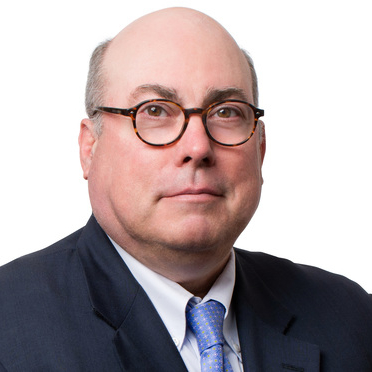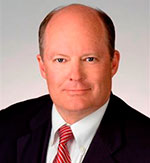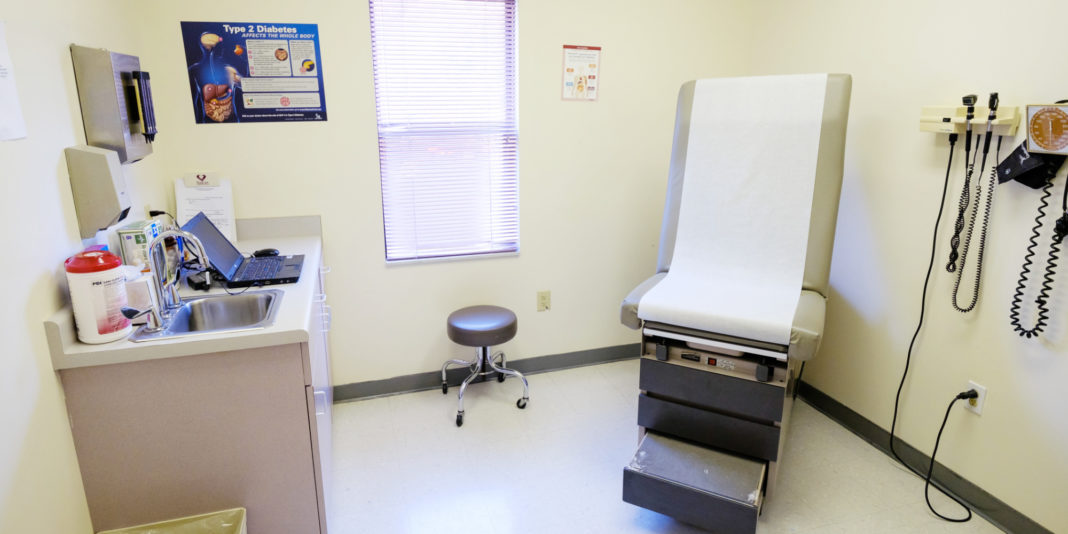ATLANTA/MACON – Three families with deep ties to Mercer honored the University and its School of Medicine’s founding mission to serve the citizens of rural Georgia by retiring more than $4.3 million in medical debt for nearly 3,000 individuals living in 33 Georgia counties.
The Mercer Family Cares Initiative was conceived by the Hon. William S. Duffey Jr., retired United States District Judge for the Northern District of Georgia and former partner at King & Spalding in Atlanta.

A couple of head-scratching experiences in the health care system inspired Duffey to take an interest in medical billing practices. In one instance, he observed his insurance company price a medication at more than $500 when the same drug over the counter would have cost around $40. On another occasion, he noticed an inflated itemized charge for a sterilized Sharpie he was told to use to indicate which of his legs would receive surgery.
The more he researched, the more he saw evidence of a “broken” system, he said, that was needlessly confusing and imposed undue and unreasonable expense on people, especially those living in poverty.
“I’ve always wondered how people navigate the system, especially those who didn’t have the patience, time or resources,” Duffey said.
With Mercer’s School of Medicine working to solve issues related to access to care in rural Georgia, Duffey recruited longtime friends and Mercer Law graduates Richard A. (Doc) Schneider, a current University trustee, and Dwight Davis, a former trustee, to resolve the burden of medical debt carried by those living in poverty in counties served by Mercer.
“I believe in personal financial responsibility and have told a lot of lawyers it is a choice to manage their lives well fiscally,” Duffey said. “But it is seldom a choice to incur medical debt. When you’re sick, have an accident or suffer from disease, you have to get care. So, it’s an involuntary imposition of a debt on someone. That debt imposes a particularly harsh barrier for the poor.”
Duffey’s research led him to RIP Medical Debt, a nonprofit organization founded in 2014 by two former debt collections executives, which uses donations to buy large bundles of medical debt at discounted rates in order to relieve that debt with no tax consequences on recipients and a tax benefit to donors.
RIP Medical Debt reports that each day 79 million Americans choose between paying medical bills and basic needs like food and shelter. Some 66% of all U.S. bankruptcies and 25% of all U.S. credit card debt are tied to medical debt. Over seven years, the organization has eradicated in excess of $4.5 trillion in medical debts for more than 2.6 million individuals and families.
Inspired by Mercer’s mission and its formative role in the lives of family members, his closest friends, and his mentors Griffin Bell and Frank Jones, Duffey did not have to look far to find a connection to tie this philanthropic work to the University.
His son, Charles, a Mercer Law graduate, serves as chief operating officer for Mercer Medicine, the medical school’s multi-specialty physician practice. In recent years, Mercer Medicine has opened rural health clinics in Sumter, Peach, Clay and Putnam counties, with plans underway for another in Harris County.
The elder Duffey asked RIP Medical Debt to tally the amount of debt available to be purchased for those living in poverty in the counties where Mercer’s rural health clinics are located and all adjacent counties. These individuals were identified as either making less than two times the federal poverty level, having medical debt that represented 5% or more of their annual income, or facing insolvency with more debts than assets.

Bill and his wife, Betsy, who earned a graduate degree from Mercer, teamed with Doc and Helen Schneider and Dwight and Brenda Davis to donate the funds to erase $4,369,096.38 in debt across 33 counties, averaging $1,524.46 per person among 2,866 individuals.
“Judge Duffey follows the map of his heart. I know this from long experience. He showed Helen and me the way we might make a difference, honor the Mercer mission and help some good folks in need. We jumped on board. When I saw how much medical debt we were able to retire, I was amazed,” Schneider said.

“This project is a happy confluence of good friends and a good cause. We all hope that our charitable donations are put to good use and RIP Medical Debt positively impacts the lives of an enormous number of people. This project is also a perfect complement to Mercer School of Medicine’s mission to improve rural health care. Brenda and I are so thankful that Bill brought this project to us and that we are in position to help,” Davis added.
MUSM Dean Jean Sumner, M.D., FACP, said it is “an honor” for the School of Medicine to be part of such a “worthy and important” initiative.
“The Mercer Family Cares Initiative and those who support this effort may not fully comprehend the transformational impact this program will have on the lives of patients, access to care and the health of Georgians in need,” Dr. Sumner said. “Access to quality health care in rural communities is negatively impacted by a number of factors. None are more prohibitive than exorbitant price and needless bureaucracy that results in unwarranted cost of care. These factors contribute to insurmountable walls that interfere with patients’ ability to freely seek and receive quality care. This gracious and generous offer will save lives, prevent disease and change our state for the better.”
Duffey does not intend to stop with the $4.3 million that has already been erased. He worked with RIP Medical Debt to determine that more than $13 million owed by impoverished individuals in Fulton County could be relieved with donations totaling around $200,000.
With some equity partners at major Atlanta law firms earning more than $1 million annually and recent reports indicating first-year associates at major New York firms receiving salaries of $205,000, Duffey is calling on the Atlanta law community to use its abundant resources to help its neighbors.
He points to the Mercer Family Cares Initiative as an example of what can be accomplished.
“I’m going to propose that the lawyers in Fulton County collectively donate $200,000 to retire the medical debt of every poor person in Fulton County,” he said. “I think lawyers will embrace the challenge. If three lawyers who have been friends for 40 years can do something like we did, then a collective effort at a far lower price tag per person can have an immeasurable impact on the poor in our community. Frankly, I think if I went back to RIP Medical Debt and said, ‘Tell me what the collective medical debt is for poor people throughout Georgia,’ that lawyers could retire it all with the stroke of a pen. Well, maybe several pens.”
“I join Bill and Dwight in calling on the legal community – and heck, let’s get the entire community involved in this and send a wave of Mercer kindness to assist financially strapped individuals all across Georgia bring an end to the medical debt weighing them down,” Schneider added.










